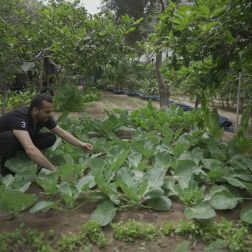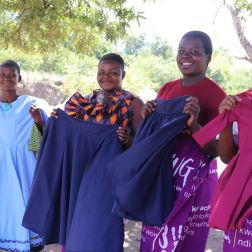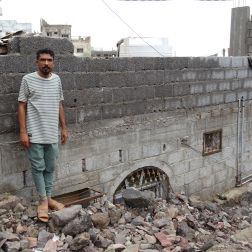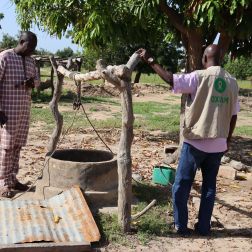- 5 mins read time
- Published: 7th April 2017
Exposed: People seeking safety met with brutality and violence on Europe’s borders
“They put us in a cage and didn’t give us food for three days. They beat us so badly. They even gave us electric shocks.” Isaaq from Afghanistan
These are the words of Isaaq from Afghanistan. After fleeing his home, Isaaq travelled through Iran and Turkey to Bulgaria - in search of safety and dignity. Instead he was met with brutality and violence.
“All the way, we were treated so cruelly. The Bulgarian police treated us so harshly that we will never forget it as long as we live – not only me but also all my brothers standing here faced cruelty in Bulgaria. They crossed the limit of cruelty,” Isaaq said.
This is just one of 140 stories from refugees and migrants using the Western Balkan route to reach Europe which detail violence, brutality and unlawful treatment by authorities. The stories are highlighted in a new report from Oxfam, the Belgrade Centre for Human Rights and the Macedonian Young Lawyers Association.
People fleeing unimaginable situations in their home countries - violence, persecution, disaster and poverty - described beatings, robbery and inhumane treatment at the hands of police, border guards and other officials.
In many cases, they also described illegal deportations and being denied access to asylum procedures. In Serbia a group of people, including a two-year old child, were told that they were being taken to a refugee reception centre. Instead, police brought them to a forest on the Bulgarian border in the middle of the night in freezing temperatures and left them there. The group survived, but by the time they were found two of them had lost consciousness due to hypothermia.
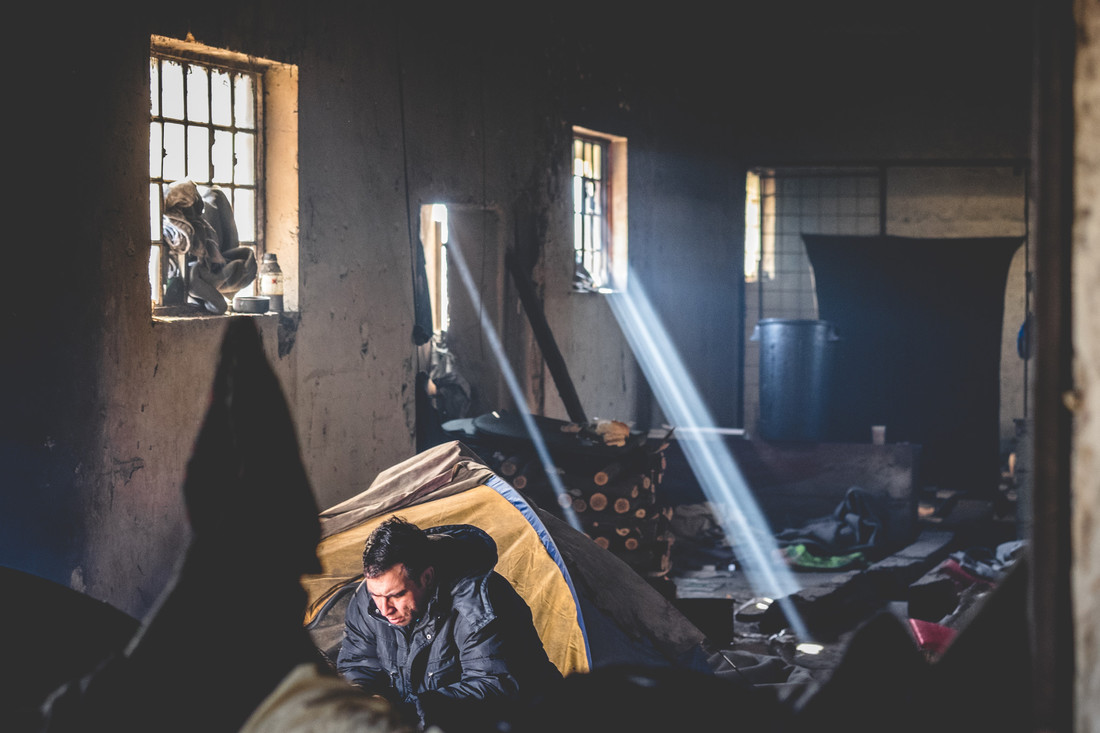
A man sits amid the chaos in a derelict warehouse behind the main railway station in the Serbian capital of Belgrade. Broken or missing window panes have been plugged by clothes and rags to keep the cold at bay, while firewood has been collected so that those camping inside can light fires when temperatures plunge in the evening. Many people are forced to live in these inhumane and degrading conditions after unsuccessfully attempting to cross the border into Hungary or Croatia. Lack of space in government accommodation, coercion by smugglers and the fear of deportation means this is their only choice of shelter.
Photo: Miodrag Ćakić/Info Park
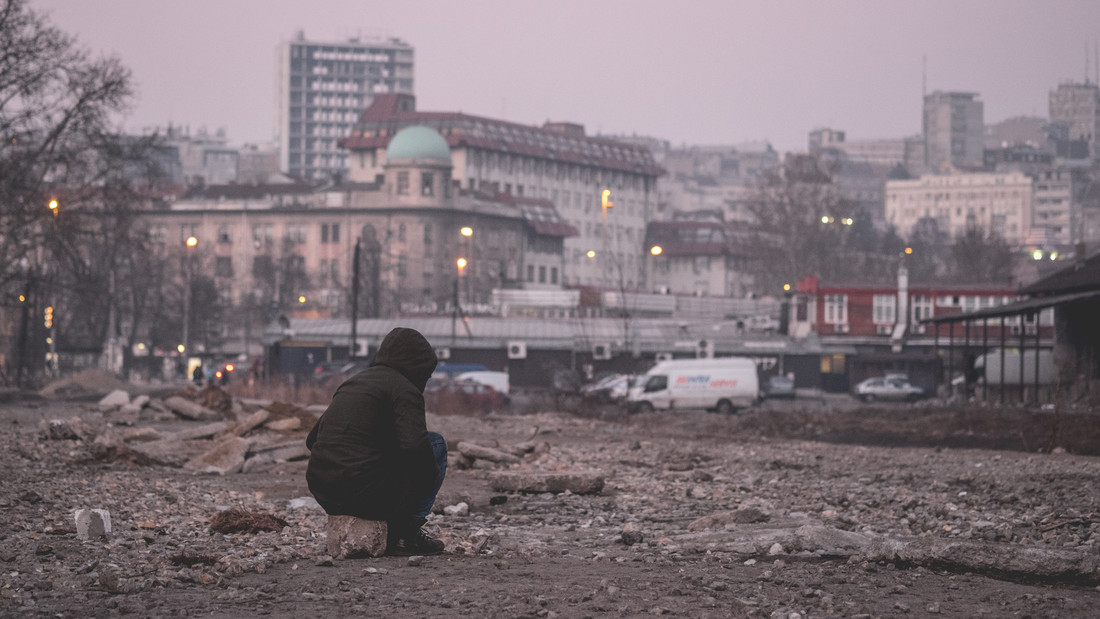
A solitary figure sits on a piece of rubble in wasteland close to Belgrade train station. The area has become home to migrants and refugees being pushed from one country into another across the western Balkans. Many have suffered physical abuse from the police at the border.
Photo: Miodrag Ćakić/Info Park
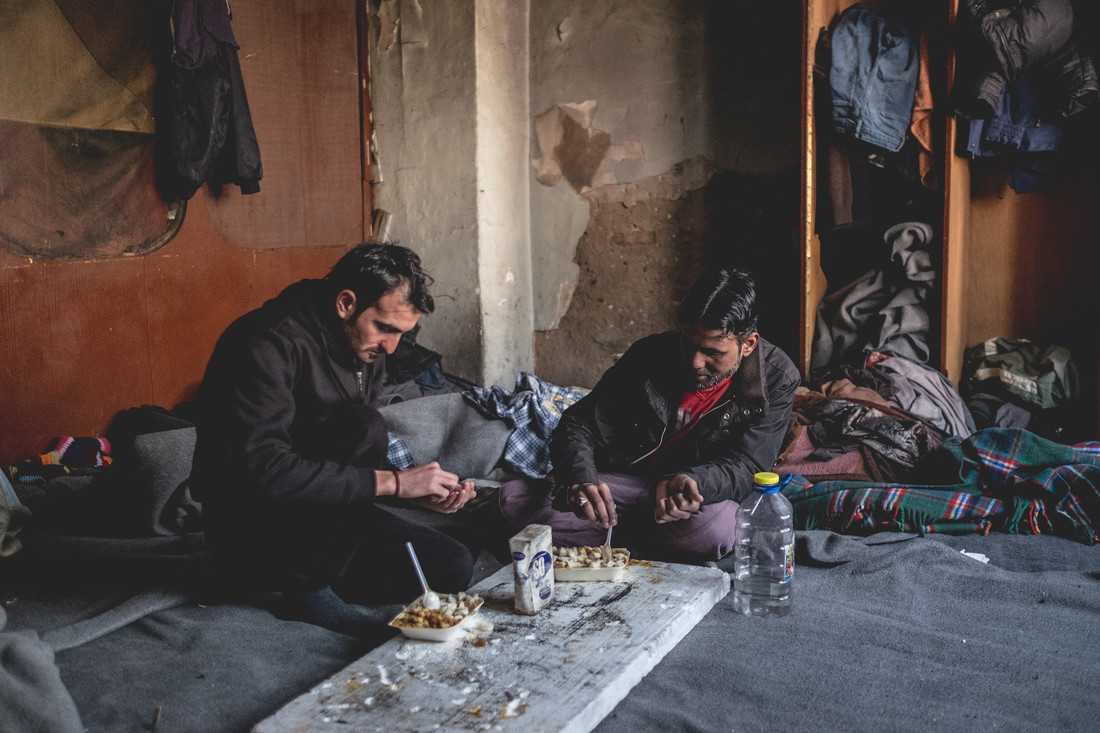
Two residents of an empty warehouse in Belgrade city centre eat from a makeshift table. A plank of wood on the floor is used as a table while the pair eat takeaway food with plastic cutlery. This poorly adapted shelter has exposed people forced to live there to freezing temperatures throughout the winter.
Photo: Miodrag Ćakić/Info Park
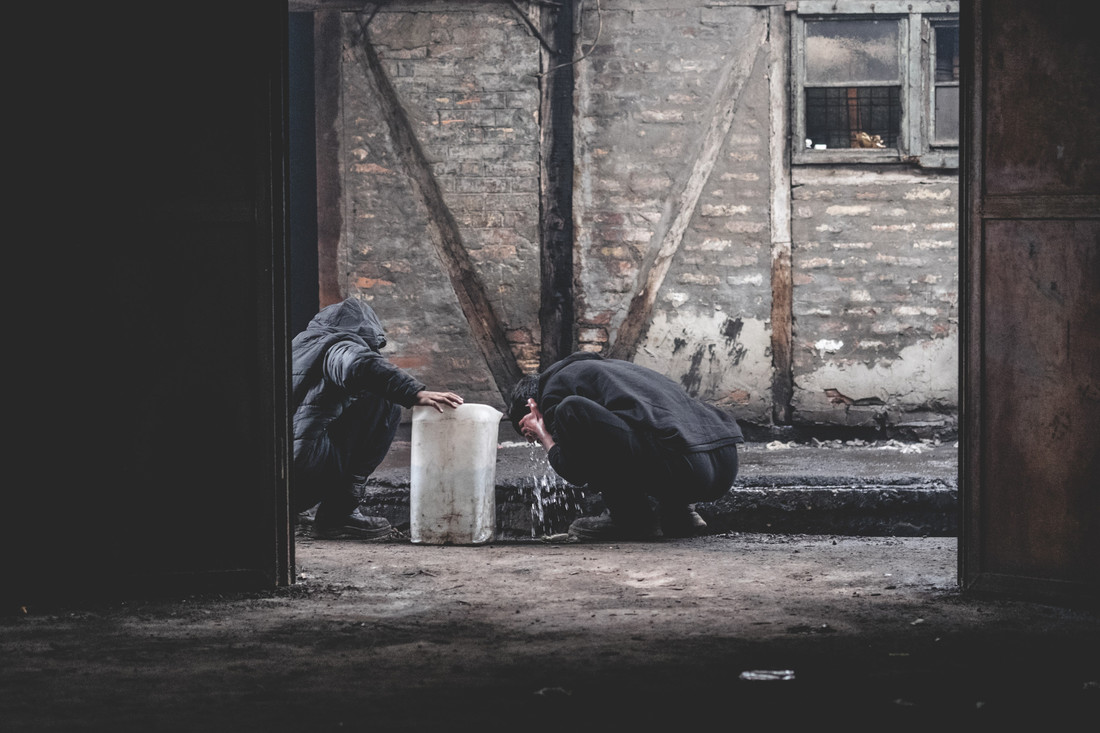
Keeping clean in these conditions is difficult as there is no running water. Two men wash themselves using water from a large plastic tank outside the warehouse where they are camping.
Photo: Miodrag Ćakić/Info Park

Desperate to keep warm, three people huddle around a fire lit in the centre of the disused warehouse. Conditions are dire in this makeshift camp, with waste strewn around the floor and no proper sanitation or sleeping facilities. The men sleep in tents which have been erected around the building and sit on whatever they can find.
Photo: Miodrag Ćakić/Info Park
What is Oxfam doing in the Balkans?
Oxfam is working with vulnerable refugees and migrants in Serbia as well as in the broader Balkans region. We work with people living outside and inside official accommodation sites in Serbia and work with local organisations to reach people in need across the Balkans regions. We’re providing essentials like food and clothing. We are also providing legal counselling and support for people who have been pushed back across the region’s borders.
